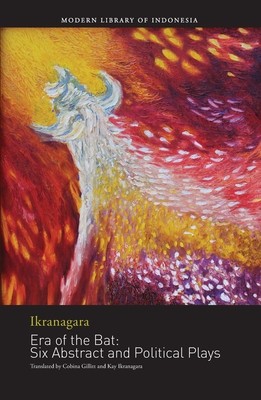
- We will send in 10–14 business days.
- Author: Ikranagara Ikranagara
- Publisher: Lontar Foundation
- ISBN-10: 6237150226
- ISBN-13: 9786237150220
- Format: 15.3 x 23.5 x 2 cm, minkšti viršeliai
- Language: English
- SAVE -10% with code: EXTRA
Reviews
Description
The six plays in this collection by Ikranagara (1943-2023) were written and performed by his theater company Teater Saja ("Simply Theater") between 1975 and 1997 during Indonesia's New Order era (1966-1998) when freedom of speech was severely curtailed under the autocratic rule of President Soeharto. The New Order regime was plagued by corruption, collusion, and nepotism with widespread allegations of government officials engaging in illicit activities for personal gain.
Ikranagara's plays comprise an ongoing dialogue on the purpose and usefulness of the arts and artists in the face of a corrupt and repressive authoritarian regime that stifles creativity while also renewing the original purpose of theater in Indonesia. Throughout his career, Ikranagara sought to find a place where he did not have to wear a mask but instead live and express himself honestly and authentically. Given the political reality in Indonesia at the time, that was impossible but he and other playwright-directors working during that period discovered that a combination of borrowing from and hybridizing traditional theater forms and aesthetics with the brutal absurdities of living in a censored and repressive society was the path to getting their theater produced and not shut down by the authorities-at least, for the most part.
EXTRA 10 % discount with code: EXTRA
The promotion ends in 21d.22:11:06
The discount code is valid when purchasing from 10 €. Discounts do not stack.
- Author: Ikranagara Ikranagara
- Publisher: Lontar Foundation
- ISBN-10: 6237150226
- ISBN-13: 9786237150220
- Format: 15.3 x 23.5 x 2 cm, minkšti viršeliai
- Language: English English
The six plays in this collection by Ikranagara (1943-2023) were written and performed by his theater company Teater Saja ("Simply Theater") between 1975 and 1997 during Indonesia's New Order era (1966-1998) when freedom of speech was severely curtailed under the autocratic rule of President Soeharto. The New Order regime was plagued by corruption, collusion, and nepotism with widespread allegations of government officials engaging in illicit activities for personal gain.
Ikranagara's plays comprise an ongoing dialogue on the purpose and usefulness of the arts and artists in the face of a corrupt and repressive authoritarian regime that stifles creativity while also renewing the original purpose of theater in Indonesia. Throughout his career, Ikranagara sought to find a place where he did not have to wear a mask but instead live and express himself honestly and authentically. Given the political reality in Indonesia at the time, that was impossible but he and other playwright-directors working during that period discovered that a combination of borrowing from and hybridizing traditional theater forms and aesthetics with the brutal absurdities of living in a censored and repressive society was the path to getting their theater produced and not shut down by the authorities-at least, for the most part.


Reviews